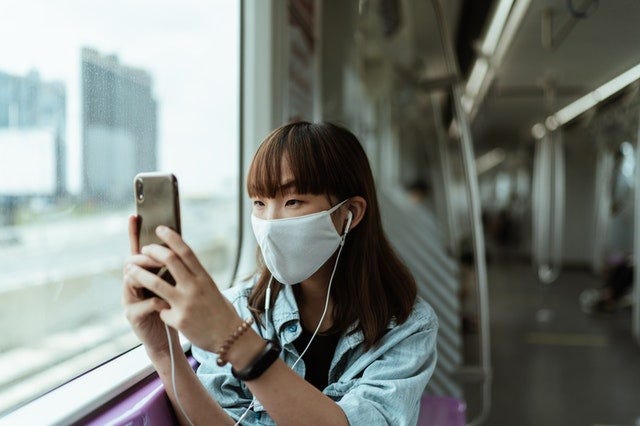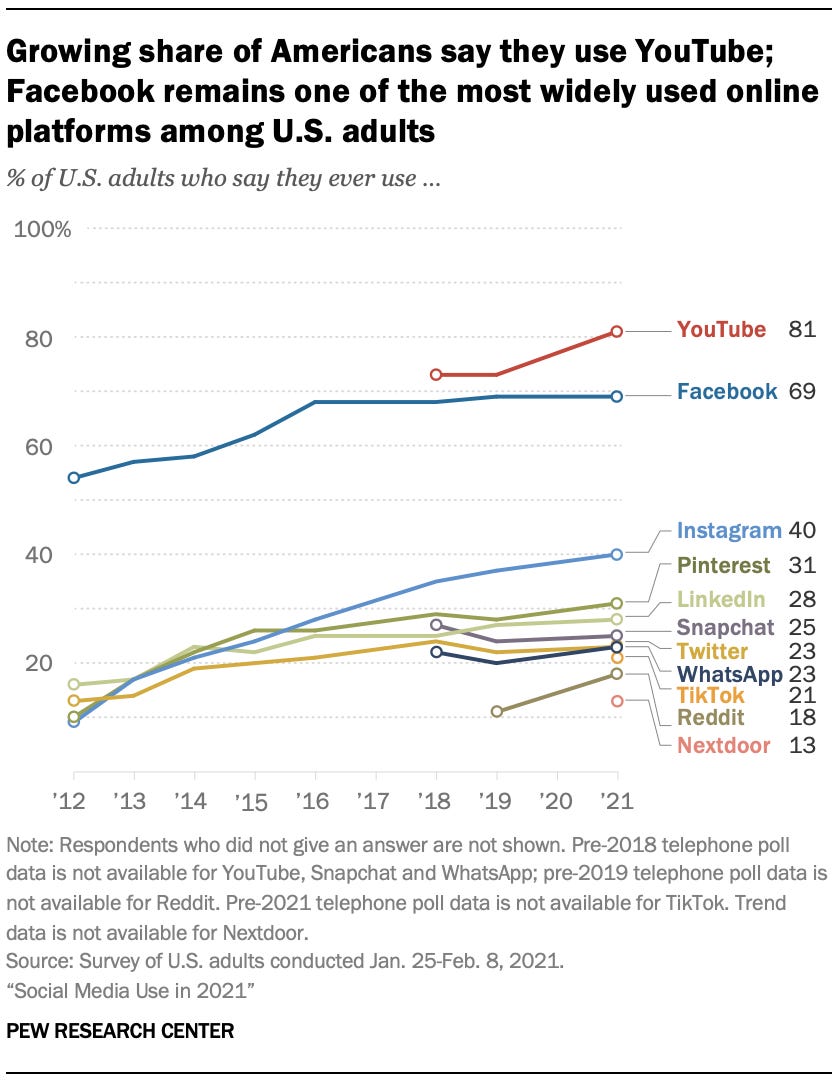The Future of Social Media Is Private
We are going back to the future.
I have overheard and participated in more conversations about the negative effects of social media in the last year than I have since I started writing about social media for my high school newspaper in the 2000s—and that’s not counting the conversations I start about the topic!
All of these conversations, in addition to some of the trends I’m observing in the broader social internet, have solidified a theory I have had for a couple of years now: the future of social media is private. Before we get into that, though, we need to explore how we got here.
Everyone Hates Social Media
Of course, not everyone hates social media, but more people do now than did a few years ago. Short of having any statistics that its a reality, I think it’s fair to say that overall sentiment toward social media is at an all-time low. In some ways this is surprising and in others it is totally logical.
It’s surprising that people are hating on social media so much because having social media amidst a global pandemic that kept us shuttered in our homes more than normal was a blessing for many people. It was often our primary means of keeping in touch with people we may otherwise be able to have into our homes.
It’s logical that people are hating on social media so much because relying on social media to be our primary means of communication during a months-long sequestration due to a global pandemic revealed its dramatic flaws and negative side effects to a significant number of people who had never seen them before.
But why does it feel like more and more people are turning against the social internet, one of the most consequential technological phenomena of the last century? To dig into the answer to that question merits a post in itself, but, in my view, the primary driver of this newfound negativity toward social media is rooted less in our personal interactions with people we know well and more in the overall tone of discourse on our preferred social media platforms.
All of that is to say this: it sure feels like many social media users are longing for a different way to connect with the people they care about on the internet, and how that will work in the next five years may not look like you would expect.
Back to the Future
The future of social media is private.
But what does this even mean?
The future of social media looks a lot more like Snapchat, iMessage, WhatsApp, Slack, Discord, Facebook Groups, and AOL Instant Messenger than it does Instagram, Facebook, and Twitter.
Social media platforms are best understood in two basic categories: performative and communicative.
Performative social media platforms are platforms that lend themselves more to one-way communication and “performances” of various kinds than they do dialogue and interpersonal communication.
Communicative social media platforms are platforms that lend themselves more to dialogue between people, giving a backseat to performers and influencers.
Many social media platforms don’t fit neatly into one category or the other, as the line is blurry sometimes, but many do. Snapchat is much more communicative than performative. TikTok is the opposite: performative over communicative. Instagram and Facebook are two places that have a foot in both kinds of social media.
I would be willing to bet that the future of social media looks like you and me and others spending less time scrolling our Instagram feeds and more time in a fancy new version of iMessage that emphasizes personal connections among smaller groups of people. In fact, Apple is already working on a product like this.
Part of the reason I’m so confident in my assertion that the future of social media is private is because social media is already much more private today than it was as recently as three or four years ago. More and more communities of like-minded people are gathering on platforms that have no central “feed” of content like the social media platforms that have absorbed so much of our time and attention for the last decade.
Teenagers continue to use Snapchat as a primary form of communication. Discord, originally a chat designed for video game culture, has become widely popular in different communities. Reddit has continued to explode in popularity because of its community/affinity-based construction.
An increasing number of social media users are either opting out of traditional social media entirely or opting to spend more time on platforms that are glorified chatrooms, group texts, or even message boards that resemble the internet of the 90s and early 00s. I also think this sort of movement is why newsletters have come back into prominence—we want content curated and delivered to our inboxes instead of having to sift through conspiracy theories and baby pictures to find what what interests us.
Just look at the new data below from Pew’s 2021 social media report: Instagram and Facebook use are leveling off for the first time ever.
I’ll probably dedicate an entire post to this research next Friday, but I needed to share that graph a bit early this week to demonstrate my point: we are getting sick of “the feed” and we’re looking for alternatives.
Modern social media thrives on consumption, and we long for social media that encourages construction.
The future of social media is smaller, private communities that we participate in because of our shared affinities. This doesn’t mean performative platforms like TikTok or YouTube are going away—not at all.
What I expect to happen is that a clearer line will be drawn between performative and communicative social media platforms. Users will have preferred platforms for each kind of media: the kind they use to communicate with friends and the kind they use to watch influencers and entertainers.
I think that the high school social media power user in 2027 will be largely inactive on Facebook, Instagram, and Twitter, messaging friends on an amped-up iMessage or Snapchat and watching entertainers on YouTube, TikTok, and other performance-based platforms.
The future is likely to look a whole lot like the past. But instead of chatting on AOL Instant Messenger and watching TV, we’ll be chatting in Discord and watching YouTube.
There really is nothing new under the sun.




I agree the trajectory is tending towards the private. I know that's definitely been the case for myself. However, I'm not confident this is necessarily a good thing. Until we acknowledge our compulsive dependence on smartphones and social media, we are simply exchanging one platform for another. Although I am 100% behind getting rid of the mediating algorithms...